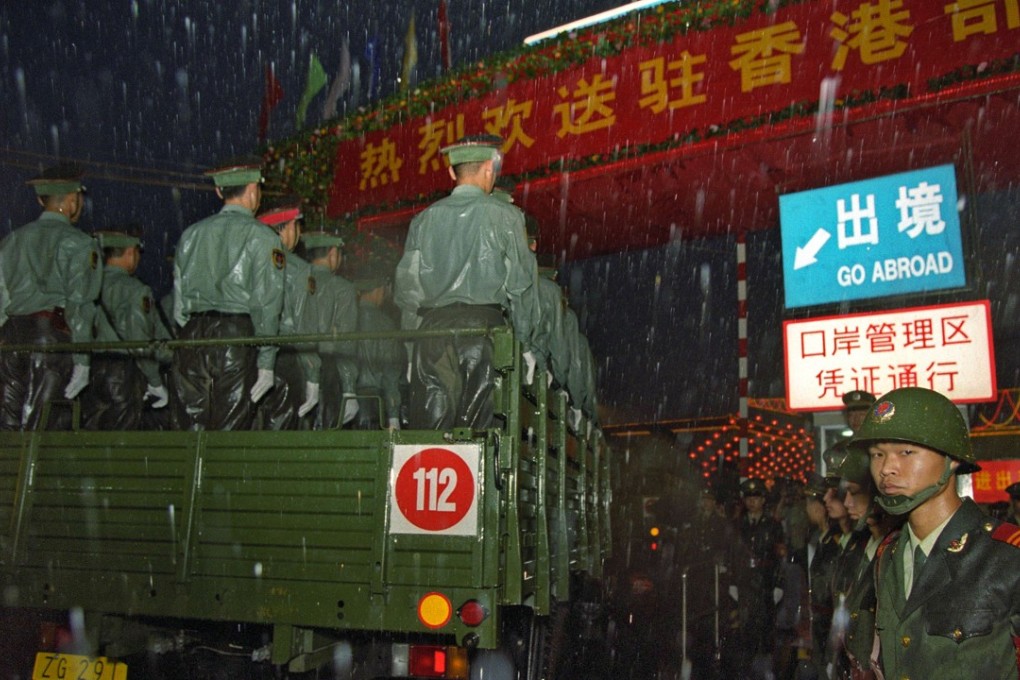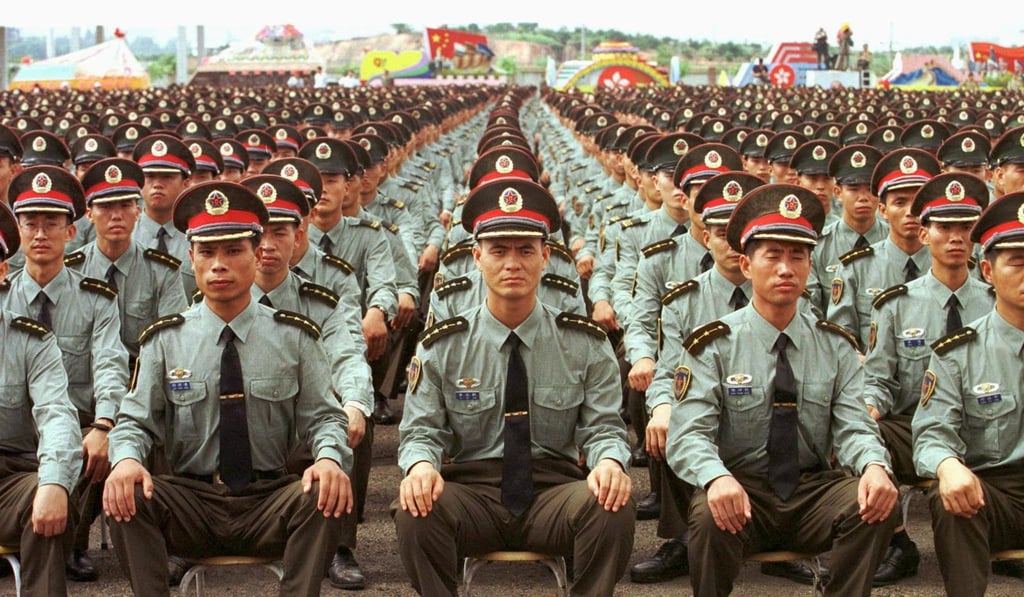Then & Now | Opinion: the Hongkonger who decided PLA deserved a welcome in July 1997, and still does
Jason Wordie recalls the moment he offered his hand to a newly arrived Chinese officer through the gates of Sek Kong Camp on July 1, 1997

At 2am on July 1, 1997, returning home to Kam Tin after a handover party, bone-tired and fortified with that most colonial of drinks, BGA (brandy-ginger-ale), the long-anticipated day had finally come and gone, “the captains and the kings” (Chris Patten and Prince Charles) had departed these shores and the world we knew hadn’t, yet, come to an ignominious end. Came the dawn, Hong Kong was now unmistakably China. Through the torrential downpour, the East Was Red, and I ventured outside with a mug of tea (British Army style, strong and thick with evaporated milk) to await the People’s Liberation Army’s arrival in my road.
Not everyone was so keen to observe the spectacle. Auntie Cissie, my next-door neighbour, would not come out of the house; lamenting the fact she’d lived to see Hong Kong returned to China, she sat inside in tears. On the other side, the gambling den resounded to the usual thump and rattle of mahjong tiles, as it did every day of the year from midday till dawn.
As the first PLA trucks rumbled past, the mahjong parlour’s elderly custodian staggered outside [...] hawked up the night’s sputum, spat it copiously into the street, hung up his freshly rinsed underwear ... then retreated back inside
Much like the Lunar New Year fireworks that annually turned Kam Tin into an echo of the Somme, such establishments were an aspect of New Territories life that urban residents were either unaware of, or refused to believe existed.
As the first PLA trucks rumbled past, the mahjong parlour’s elderly custodian staggered outside, as he did each morning around sunrise, and – as on every other day – hawked up the night’s sputum, spat it copiously into the street, hung up his freshly rinsed underwear on a wire coat hanger from the air conditioner, then retreated back inside and slammed the door.
The passing parade fetched only the briefest glance before he returned to other, more pressing matters.

So I waved and shouted, and the poor drenched soldiers standing in the back of open trucks waved silently back and shook the plastic bouquets each one firmly grasped. Presumably, the sight of grown men in military uniform brandishing bunches of flowers was intended to look friendly and unthreatening.

